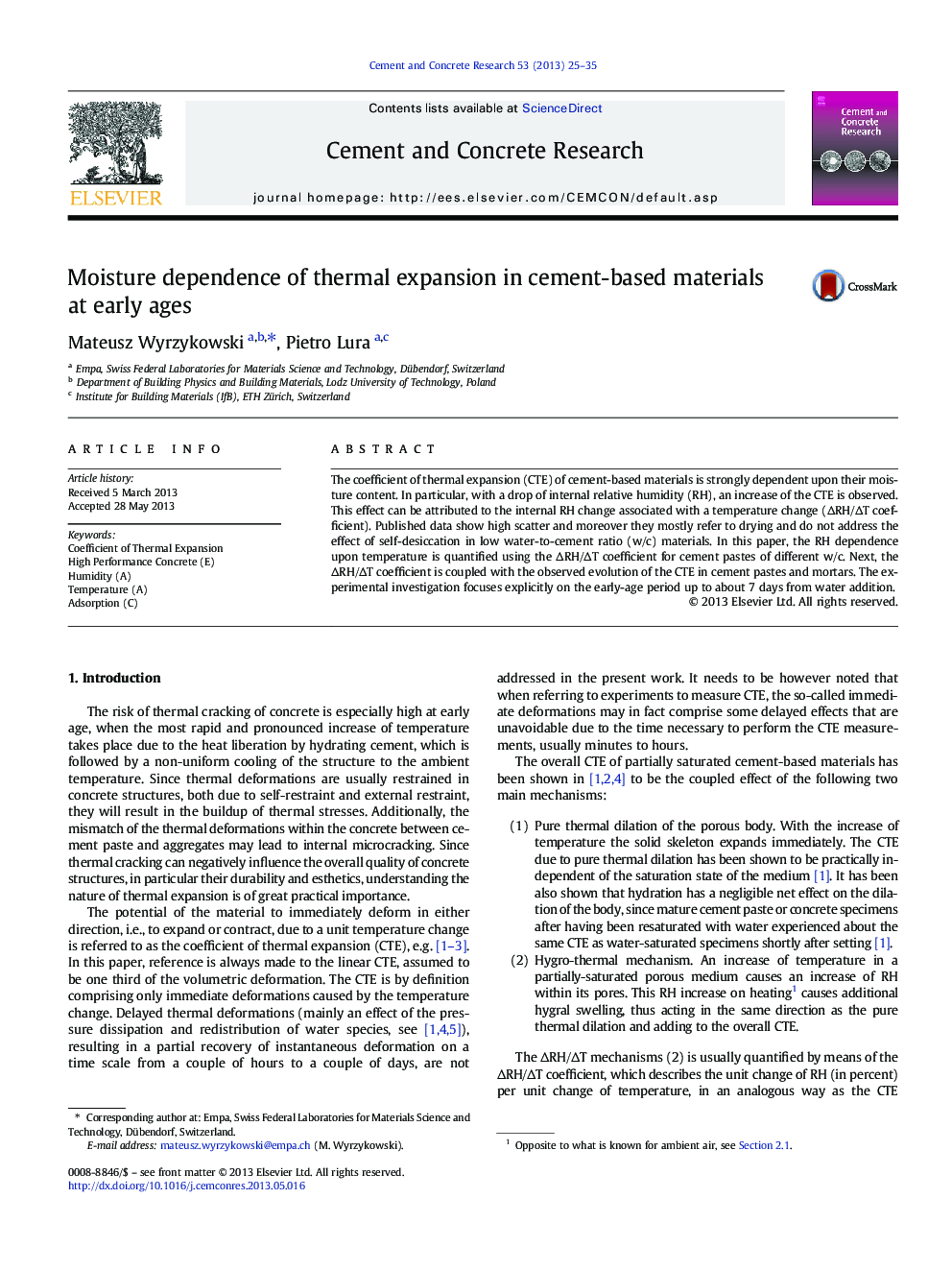| Article ID | Journal | Published Year | Pages | File Type |
|---|---|---|---|---|
| 1456408 | Cement and Concrete Research | 2013 | 11 Pages |
•CTE of cement-based materials depends on their moisture state.•CTE and ΔRH/ΔT are measured at early age in sealed conditions.•CTE increase during self-desiccation is due to RH dependence upon temperature.•RH increase on heating exceeds 0.4%RH/°C at 90%RH for low w/c materials.•Capillary pressure-based model allows for validation of the CTE–RH mechanism.
The coefficient of thermal expansion (CTE) of cement-based materials is strongly dependent upon their moisture content. In particular, with a drop of internal relative humidity (RH), an increase of the CTE is observed. This effect can be attributed to the internal RH change associated with a temperature change (ΔRH/ΔT coefficient). Published data show high scatter and moreover they mostly refer to drying and do not address the effect of self-desiccation in low water-to-cement ratio (w/c) materials. In this paper, the RH dependence upon temperature is quantified using the ΔRH/ΔT coefficient for cement pastes of different w/c. Next, the ΔRH/ΔT coefficient is coupled with the observed evolution of the CTE in cement pastes and mortars. The experimental investigation focuses explicitly on the early-age period up to about 7 days from water addition.
